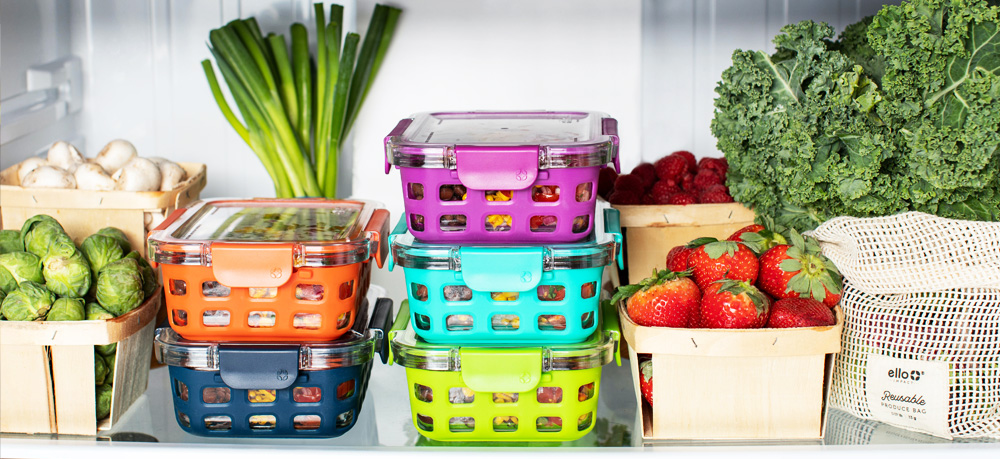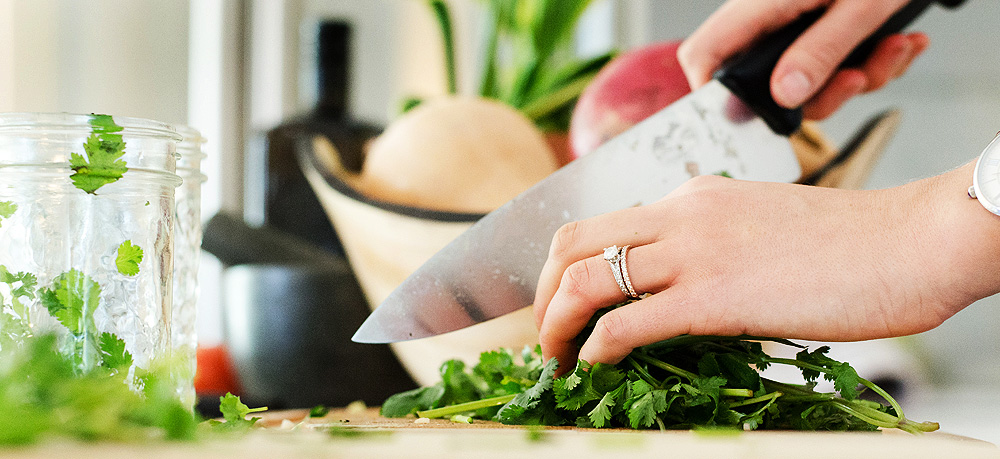Healthy Eating Plans: New Year’s Resolution Food Tips You Can Stick To
When it comes to healthy eating plans there are few people more well placed than Rowena Humphreys to share knowledge on how to maintain a healthy diet. And not only eat well but still enjoy cooking and helping get more plants (vegetables, fruits, grains and beans) on your plate.
Which in turn results in improving your wellbeing and being empowered to make healthy choices.
London-based Rowena is a Social Impact & Sustainability Consultant and a certified Food For Life Trainer working with the Physicians Committee for Responsible Medicine. She is also a graduate of Cornell’s Plant-Based Nutrition course and a Founding Trustee of Made In Hackney.
Rowena Humphreys’ mission is to help people get healthy through food.
Below she outlines what to do if you’re fed up with dieting, or the latest food fad and wants to:
- Learn how to make quick, healthy, delicious meals.
- Get more variety and whole foods into your diet.
- Have a personalised meal plan (to save time and money).
- Reduce or eliminate animal products, perhaps go vegetarian or vegan.
- Reorganise your kitchen to make it a more positive and tidy place.
- Understand how to read food labels and make healthy choices.
- Shop efficiently, make great use of leftovers and reduce waste.
Making New Year’s resolutions and healthy eating plans

The beginning of a new year is when we start to create new resolutions and set intentions for new habits. In the past, I’ve normally made mine around health and how I would improve it, either through more exercise or diet—normally the latter.
For me, a woman, I don’t think I’m alone. For instance, colleagues often enter the office come January eating their 200 calorie soups, with their new gym membership in hand and on a kick to lose weight.
Meanwhile, the media is showing photographs of beautiful air-brushed bodies signalling how you can lose weight fast.
And get the stomach “we’ve always wanted” and the thigh gap we don’t need. Then comes the confusing messaging: count calories or don’t count calories, high carb-low fat versus high fat-low carb.
It’s a nightmare, it’s confusing and so many people end up throwing their hands in the air proclaiming it’s too just hard. It can aso lead some people on the slippery slope to developing eating disorders.
Now don’t get me wrong, I like new year’s resolutions, but I also like my goals achievable. Yes, a stretch-goal is good but a goal that will inevitably fail by February is no fun for anyone and, well, no one likes to “fail”.
So, about 8 years ago I made a conscious life transition. A big one. I decided how to start eating healthy, to cut animal products (in all forms) out of my diet, and by diet, I simply mean what I eat, not the calorie counting kind.
I originally made this change for my health following a serious amount of research. But the environmental and animal welfare benefits are equally important to me.
As a result of this change, my life, my health, and that of my family has shifted in ways I could never have ever imagined.
Achievable goals and tips on how to make your diet healthier

If you want to follow some healthy eating plans this coming year and are at all conflicted and confused about how to do it, here are a few simple tips that I’ve picked up and live by.
The outcome is that I will never have to lose weight as part of my new year’s resolutions again.
1: Eat whole foods
Simply put this means eating foods as close to their natural state, which in turn means getting more nutrients. Think about an orange (whole food) versus orange squash (processed).
The former has lots of fibre, vitamins and nutrients. The latter has most of this good stuff taken out and added colours, flavours, sugars and preservatives added in.
By opting for foods close to their natural state we’re maximising nutrients which is great for our healthy eating plans, and of course, our overall health.
2: Select foods with a minimum number of ingredients
I can thank a great lecture from the amazing Michael Pollen at The London School of Economics for this tip – listen to it here.
If you’re making a vegetable pasta sauce you would probably use a range of fresh vegetables and herbs. If you buy it in a jar there will be many ingredients that aren’t actual “foods”, in addition to the veggies you’ll find preservatives, salt, and sugar.
I say keep it simple and wherever possible make the time to make it yourself. Another nice tip on how to start eating healthy that’s linked to this is if you can’t pronounce an ingredient, don’t eat it!
3: Eat more plants
Regardless of whether you’re vegetarian, vegan or a self-confessed carnivore we can all agree that fruits, vegetables, grains and legumes are good for our healthy eating and we’d be healthier if we ate more of them.
Five a day is a great start but with a basic repertoire of recipes we can get even better.
Packed full of fibre, vitamins, minerals, and nutrients and naturally cholesterol-free we are only benefitting. So make this coming year one where plants are the star of your plate.
So, in 2022 rather than opting for a “weight loss diet” opt for a change in diet that will result in long-term healthfulness and renewed confidence and self-esteem.
A healthfulness that can be sustained way after everyone else’s new year resolutions have fizzled out.
These healthy eating plans are for all ages and that the motivations are mixed: as people start the diet for one reason, they quickly become aware of its other (health or environmental) benefits.
As an animal lover and environmental specialist, I laud veganism for its health benefits and assist hundreds of clients in managing weight and avoiding disease. This is why is healthy eating important for us all.
My mother is my biggest achievement, she grew up with a father who was a patissier. Three months after turning to a plant-based diet, she came off statins [a medication that lowers cholesterol in patients at risk of cardiovascular disease.
To find out more about Rowena Humphreys have a look at her LinkedIn profile HERE.


